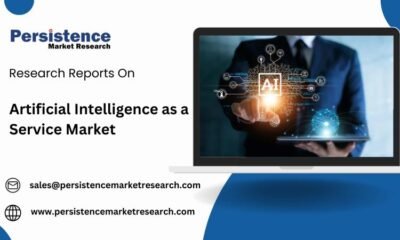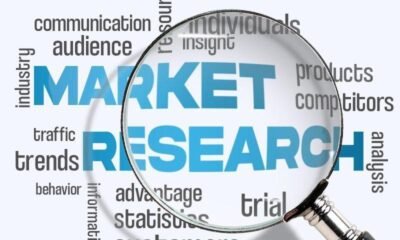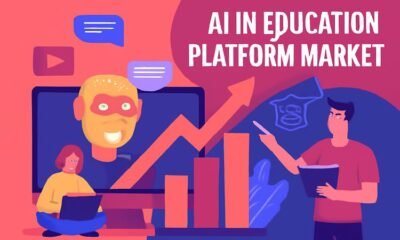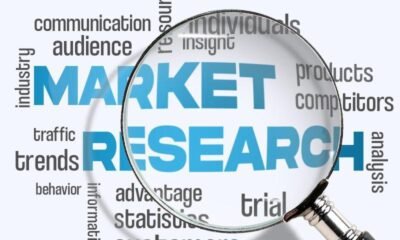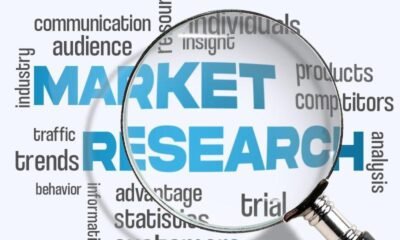AI Insights
Artificial Intelligence in Epidemiology Market Size, Share

According to a new report by InsightAce Analytic, the “Artificial Intelligence in Epidemiology Market Size is valued at 475.63 Million in 2024 and is predicted to reach 5271.80 Million by the year 2034 at an 27.4% CAGR during the forecast period for 2025-2034.
Request For Free Sample Pages:
https://www.insightaceanalytic.com/request-sample/1450
Latest Drivers Restraint and Opportunities Market Snapshot:
Key factors influencing global artificial intelligence in the epidemiology market are:
• Big data handling
• Early detection and surveillance
• Predictive modeling
The following are the primary obstacles to artificial intelligence in the epidemiology market’s expansion:
• Data quality and bias
• Ethical concern
• Dynamic nature of the disease
Future expansion opportunities for the global artificial intelligence in epidemiology market include:
• Earl’s detection of disease outbreaks
• Precision epidemiology
• Integration with the healthcare system
Market Analysis:
Artificial intelligence can be used to detect and track disease outbreaks by monitoring real-time health data, including social media, online searches, and electronic health records. This can provide timely insight into health risks. AI-based predictive models use machine learning algorithms to analyze various data sources and predict disease prevalence. These models help health officials and policymakers plan and implement targeted interventions. Thus, driving the market expansion.
List of Prominent Players in the Artificial Intelligence in Epidemiology Market:
• IBM Corporation
• Google Health
• Microsoft Healthcare
• Amazon web service
• IQVIA
• SAS institute
• Oracle health science
• Palantir tech
• Kinsa health
• Bluedot
• Epidemic
• Health map
Recent Developments:
• September 13, 2022: The National Institutes of Health (NIH) has begun investing $130 million over four years to accelerate the adoption of artificial intelligence (AI) in science and behavioral research.
• August 30, 2022: Penn Medicine and The Children’s Hospital of Philadelphia (CHOP) have established the Penn-CHOP Kidney Innovation Center to fund research aimed at improving patient care for both adults and adolescents with kidney injury.
• November 7, 2022: The University at Albany has announced plans to hire a record 27 new faculty members focused on artificial intelligence, kicking off the university’s ambitions to integrate AI training and development across all departments.
Artificial Intelligence in Epidemiology Market Dynamics:
Market Drivers: Data Processing And Analysis
The integration of artificial intelligence (AI) in epidemiology is transforming the way large and complex data sets-including electronic health records, genomic data, and social determinants of health-are processed and analyzed. AI-driven tools allow epidemiologists to identify patterns, trends, and correlations within vast amounts of health data, improving disease surveillance. Additionally, AI enhances real-time health monitoring, enabling early detection and rapid response to disease outbreaks.
Curious about this latest version of the report? @ https://www.insightaceanalytic.com/enquiry-before-buying/1450
Challenges: Data Quality And Bias
The effectiveness of AI in epidemiology heavily depends on the quality, completeness, and representativeness of the data used to train models. Incomplete or biased datasets can compromise accuracy, leading to misleading predictions and potential disparities in public health responses. Another major concern is the lack of transparency in AI decision-making, particularly in deep learning models, which are often viewed as “black box” systems.
North America Is Expected To Grow With The Highest CAGR During The Forecast Period
The use of artificial intelligence (AI) in epidemiology in North America has been impressive, with several initiatives, collaborations, and research efforts focused on using AI technology for public health. North America, particularly the United States and Canada, is home to many leading research institutions and universities in AI and epidemiology research. These labs collaborate on projects to develop artificial intelligence-based tools for disease surveillance, outbreak prediction, and data analysis. Healthcare in North America is increasingly using AI technologies for a variety of applications, including epidemiology.
Hospitals, health systems, and research institutions in the region are exploring how AI can improve disease detection, diagnosis, and treatment planning. North American public health agencies such as the US Centers for Disease Control and Prevention (CDC) and the Public Health Agency of Canada are actively participating in the use of AI for disease surveillance and response. This agency plays an important role in monitoring and controlling the spread of infectious diseases. Several North American technology companies and startups are actively contributing to the development of AI tools for epidemiology. This includes integrating artificial intelligence into health analytics platforms, wearables and other solutions that support healthcare efforts.
Get Specific Chapter/Information From The Report:
https://www.insightaceanalytic.com/customisation/1450
Segmentation of Artificial Intelligence in Epidemiology Market-
By Deployment
• Cloud-based
• Web-based
By Application
• Infection Prediction and Forecasting
• Disease and Syndromic Surveillance
By End-user
• Government and State Agencies
• Research Labs
• Pharmaceutical and Biotechnology Companies
• Healthcare Providers
By Region-
North America-
• The US
• Canada
• Mexico
Europe-
• Germany
• The UK
• France
• Italy
• Spain
• Rest of Europe
Asia-Pacific-
• China
• Japan
• India
• South Korea
• Southeast Asia
• Rest of Asia Pacific
Latin America-
• Brazil
• Argentina
• Rest of Latin America
Middle East & Africa-
• GCC Countries
• South Africa
• Rest of Middle East and Africa
Get More Information: @
https://www.insightaceanalytic.com/report/global-artificial-intelligence-in-epidemiology-market/1450
About Us:
InsightAce Analytic is a market research and consulting firm that enables clients to make strategic decisions. Our qualitative and quantitative market intelligence solutions inform the need for market and competitive intelligence to expand businesses. We help clients gain a competitive advantage by identifying untapped markets, exploring new and competing technologies, segmenting potential markets, and repositioning products. Our expertise is in providing syndicated and custom market intelligence reports with an in-depth analysis with key market insights in a timely and cost-effective manner.https://www.insightaceanalytic.com/images_data/148861653.
Contact Us:
info@insightaceanalytic.com
InsightAce Analytic Pvt. Ltd.
Visit: www.insightaceanalytic.com
Tel : +1 607 400-7072
Asia: +91 79 72967118
Follow Us on LinkedIn @ bit.ly/2tBXsgS
Follow Us On Facebook @ bit.ly/2H9jnDZ
Twitter: https://twitter.com/Insightace
This release was published on openPR.
AI Insights
OpenAI says spending to rise to $115 billion through 2029: Information

OpenAI Inc. told investors it projects its spending through 2029 may rise to $115 billion, about $80 billion more than previously expected, The Information reported, without providing details on how and when shareholders were informed.
OpenAI is in the process of developing its own data center server chips and facilities to drive the technologies, in an effort to control cloud server rental expenses, according to the report.
The company predicted it could spend more than $8 billion this year, roughly $1.5 billion more than an earlier projection, The Information said.
Another factor influencing the increased need for capital is computing costs, on which the company expects to spend more than $150 billion from 2025 through 2030.
The cost to develop AI models is also higher than previously expected, The Information said.
AI Insights
Microsoft Says Azure Service Affected by Damaged Red Sea Cables
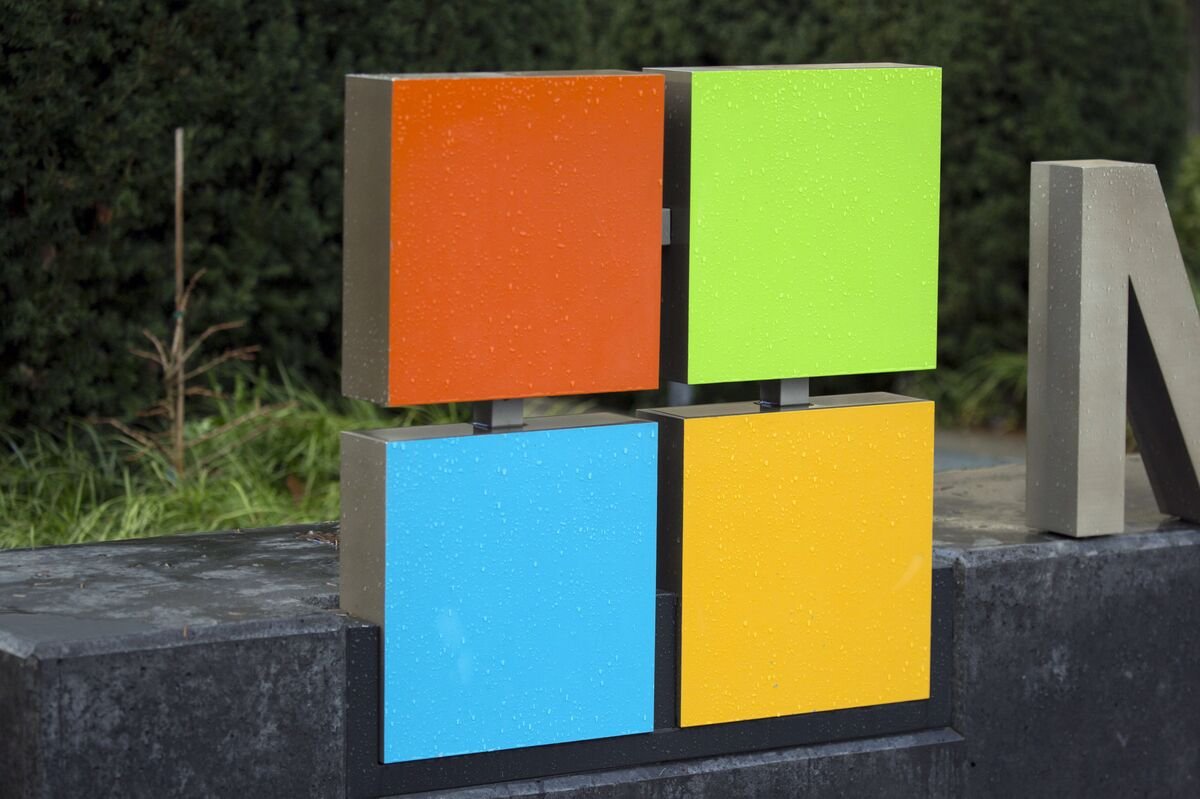
Microsoft Corp. said on Saturday that clients of its Azure cloud platform may experience increased latency after multiple international cables in the Red Sea were cut.
Source link
AI Insights
Geoffrey Hinton says AI will cause massive unemployment and send profits soaring

Pioneering computer scientist Geoffrey Hinton, whose work has earned him a Nobel Prize and the moniker “godfather of AI,” said artificial intelligence will spark a surge in unemployment and profits.
In a wide-ranging interview with the Financial Times, the former Google scientist cleared the air about why he left the tech giant, raised alarms on potential threats from AI, and revealed how he uses the technology. But he also predicted who the winners and losers will be.
“What’s actually going to happen is rich people are going to use AI to replace workers,” Hinton said. “It’s going to create massive unemployment and a huge rise in profits. It will make a few people much richer and most people poorer. That’s not AI’s fault, that is the capitalist system.”
That echos comments he gave to Fortune last month, when he said AI companies are more concerned with short-term profits than the long-term consequences of the technology.
For now, layoffs haven’t spiked, but evidence is mounting that AI is shrinking opportunities, especially at the entry level where recent college graduates start their careers.
A survey from the New York Fed found that companies using AI are much more likely to retrain their employees than fire them, though layoffs are expected to rise in the coming months.
Hinton said earlier that healthcare is the one industry that will be safe from the potential jobs armageddon.
“If you could make doctors five times as efficient, we could all have five times as much health care for the same price,” he explained on the Diary of a CEO YouTube series in June. “There’s almost no limit to how much health care people can absorb—[patients] always want more health care if there’s no cost to it.”
Still, Hinton believes that jobs that perform mundane tasks will be taken over by AI, while sparing some jobs that require a high level of skill.
In his interview with the FT, he also dismissed OpenAI CEO Sam Altman’s idea to pay a universal basic income as AI disrupts the economy and reduce demand for workers, saying it “won’t deal with human dignity” and the value people derive from having jobs.
Hinton has long warned about the dangers of AI without guardrails, estimating a 10% to 20% chance of the technology wiping out humans after the development of superintelligence.
In his view, the dangers of AI fall into two categories: the risk the technology itself poses to the future of humanity, and the consequences of AI being manipulated by people with bad intent.
In his FT interview, he warned AI could help someone build a bioweapon and lamented the Trump administration’s unwillingness to regulate AI more closely, while China is taking the threat more seriously. But he also acknowledged potential upside from AI amid its immense possibilities and uncertainties.
“We don’t know what is going to happen, we have no idea, and people who tell you what is going to happen are just being silly,” Hinton said. “We are at a point in history where something amazing is happening, and it may be amazingly good, and it may be amazingly bad. We can make guesses, but things aren’t going to stay like they are.”
Meanwhile, he told the FT how he uses AI in his own life, saying OpenAI’s ChatGPT is his product of choice. While he mostly uses the chatbot for research, Hinton revealed that a former girlfriend used ChatGPT “to tell me what a rat I was” during their breakup.
“She got the chatbot to explain how awful my behavior was and gave it to me. I didn’t think I had been a rat, so it didn’t make me feel too bad . . . I met somebody I liked more, you know how it goes,” he quipped.
Hinton also explained why he left Google in 2023. While media reports have said he quit so he could speak more freely about the dangers of AI, the 77-year-old Nobel laureate denied that was the reason.
“I left because I was 75, I could no longer program as well as I used to, and there’s a lot of stuff on Netflix I haven’t had a chance to watch,” he said. “I had worked very hard for 55 years, and I felt it was time to retire . . . And I thought, since I am leaving anyway, I could talk about the risks.”
-

 Business1 week ago
Business1 week agoThe Guardian view on Trump and the Fed: independence is no substitute for accountability | Editorial
-
Tools & Platforms4 weeks ago
Building Trust in Military AI Starts with Opening the Black Box – War on the Rocks
-

 Ethics & Policy1 month ago
Ethics & Policy1 month agoSDAIA Supports Saudi Arabia’s Leadership in Shaping Global AI Ethics, Policy, and Research – وكالة الأنباء السعودية
-

 Events & Conferences4 months ago
Events & Conferences4 months agoJourney to 1000 models: Scaling Instagram’s recommendation system
-

 Jobs & Careers2 months ago
Jobs & Careers2 months agoMumbai-based Perplexity Alternative Has 60k+ Users Without Funding
-

 Education2 months ago
Education2 months agoVEX Robotics launches AI-powered classroom robotics system
-

 Podcasts & Talks2 months ago
Podcasts & Talks2 months agoHappy 4th of July! 🎆 Made with Veo 3 in Gemini
-

 Education2 months ago
Education2 months agoMacron says UK and France have duty to tackle illegal migration ‘with humanity, solidarity and firmness’ – UK politics live | Politics
-

 Funding & Business2 months ago
Funding & Business2 months agoKayak and Expedia race to build AI travel agents that turn social posts into itineraries
-

 Podcasts & Talks2 months ago
Podcasts & Talks2 months agoOpenAI 🤝 @teamganassi








